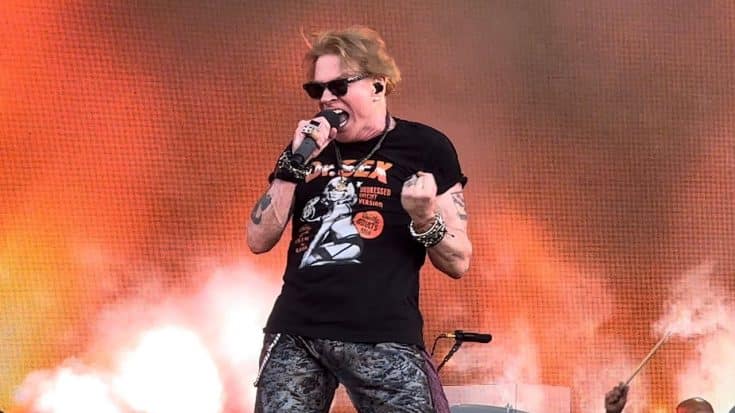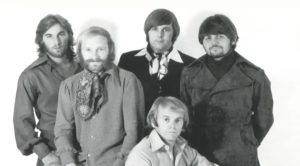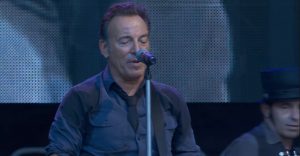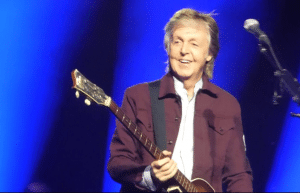8 Rock Legends Who Can’t Sing Like Before

via deepdowninside / Youtube
The wailing high notes, the soaring vocals that defined a generation of rock – for some legends, those days are gone. Time marches on, and even vocal cords aren’t immune. Even the most iconic voices succumb to the effects of age.
Take Roger Waters or Neil Diamond – their legendary range just isn’t what it used to be. But that doesn’t erase their incredible careers.
Meat Loaf, the powerhouse vocalist behind “Bat Out of Hell,” is another example. Though his pipes might not hit the same heights, his legacy of rock anthems remains untarnished.
Still, the question lingers: which other rock gods have seen their vocal prowess fade? Keep reading to find out who else might struggle to reach those legendary high notes.
Axl Rose (Guns N’ Roses)
Axl Rose, the iconic frontman of Guns N’ Roses, is now 62 years old. While Slash and Duff McKagan continue to shred and pound with youthful energy, Rose’s vocals have sparked debate in recent years. A 2014 performance of “Welcome to the Jungle” exemplifies this.
The song, once a testament to Rose’s raw power and soaring range, now reveals a strain in his voice. Unlike a faulty guitar or drum that can be replaced, a singer’s voice is an irreplaceable instrument. This raises the question: can Axl Rose, and other rock legends like him, still deliver the same vocal fireworks that ignited their careers?
Roger Waters (Pink Floyd)
Roger Waters, the driving force behind Pink Floyd’s conceptual masterpieces, is going to celebrate his 81st birthday later this year. His voice, once a potent instrument that delivered iconic lines like “We don’t need no education” with raw emotion, has faced the inevitable effects of time.
Fans who grew up with the soaring vocals on albums like “The Wall” might be surprised by a 2009 performance of “Have a Cigar”. The song, known for its demanding vocals that shift between smooth and raspy, reveals a struggle in Waters’ voice.
Bob Dylan
Bob Dylan, a true iconoclast and Nobel laureate, has never been known for possessing a conventionally “great” singing voice. His vocals have always served as an extension of his poetic lyricism, often described as raspy or nasal. However, in a recent performance of “Tangled Up in Blue” at Chicago’s Cadillac Theater, the 82-year-old folk icon is surely tangled up in something.
Dylan’s signature rasp seemed to morph into a phlegmier quality, raising concerns about his ability to deliver his iconic songs with the same intensity as in his younger years. While some fans may view this as a natural part of aging, others wonder if it affects the emotional delivery of his timeless lyrics.
Elton John
Sir Elton John, the flamboyant showman known for his vibrant costumes and soaring vocals, has faced his own vocal challenges. Throat surgery in the mid-80s permanently lowered his voice, silencing the trademark falsetto that defined hits like “Tiny Dancer.” While Captain Fantastic’s legendary piano skills remain flawless, his vocal control, though still impressive, has shown signs of wear and tear in recent live performances.
Videos from Madison Square Garden concerts in recent years reveal a shift in his vocal tone, with some fans noting a decrease in power and range. Despite these changes, the now-77 icon’s dedication to his craft and his enduring stage presence ensures that his concerts remain a captivating experience.
Meat Loaf
Meat Loaf, the larger-than-life vocalist behind rock anthems like “Bat Out of Hell,” has always pushed the boundaries of performance. But even the most theatrical rock stars face the realities of time. A 2001 performance of his epic duet, “Paradise By The Dashboard Light,” at the Night of the Proms concert raised questions about his vocal stamina. Partnering with the powerhouse vocalist Patti Russo exposed a noticeable difference in energy and vocal ability.
While Russo belted out her parts with youthful vigor, Meat Loaf, visibly tired, relied heavily on audience participation to fill in sections of the song. Still, the late rock singing icon’s legacy will always remain, which was magnified when he passed away in 2022 at 74.
Neil Diamond
Neil Diamond’s rich baritone was once an unmistakable feature of classic hits like “Sweet Caroline.” However, a 2013 performance outside the US Capitol building hinted at the toll time can take on even the most legendary voices. The 83-year-old crooner’s rendition of “Sweet Caroline” lacked its usual power, with breathy vocals struggling to maintain the song’s energy. This became even more evident when Diamond himself enlisted the audience’s help to belt out the song’s final verse.
While the crowd’s enthusiastic response undoubtedly added a layer of nostalgia to the moment, it also underscored the challenges faced by aging performers whose voices, although forever etched in musical history, may require audience participation to recapture their full glory.
Alice Cooper
Alice Cooper, the theatrical godfather of shock rock, remains a captivating live presence even in his later years. His signature dark makeup and outrageous costumes continue to entrance audiences. However, Father Time remains undefeated, and even the most iconic voices can’t escape his influence. A 2014 performance of his smash hit “Poison” in Michigan showcased the effects of aging on his vocals.
The then-66-year-old Cooper struggled to hit some notes, relying heavily on his backup singers to deliver the song’s signature melody. This doesn’t diminish the enduring legacy of Alice Cooper or the energy he brings to his live shows.
Vince Neil (Mötley Crüe)
Vince Neil, the frontman of Mötley Crüe, has never been known for possessing the most technical singing voice. However, his raw energy and undeniable stage presence have always been a core part of the band’s appeal. In recent years, though, questions have arisen about the consistency of his vocals. This reached a peak during a now-infamous performance at the Boone River Festival in May 2021.
The night became a viral cautionary tale for aging rock stars. Midway through their signature song “Dr. Feelgood”, Neil’s voice audibly faltered. He apologized to the crowd, citing fatigue and vocal strain, before abruptly leaving the stage. The band finished the song without him, leaving fans disappointed and concerned. This incident, coupled with a last-minute cancellation of a subsequent show, fueled speculation about the future of Neil’s vocal abilities and his commitment to the band.



















